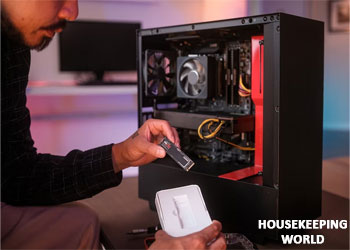Computer memory is a vital component that plays a significant role in the overall performance and responsiveness of your system. Over time, clutter and unnecessary data can accumulate in your computer’s memory, leading to reduced performance and potential issues. Here, we’ll explore effective methods to clean computer memory and optimize your system’s performance.
- Restart Your Computer:
A straightforward method to clear out memory is to restart your computer. This action terminates all running processes, freeing up memory that was being used by programs. Regular restarts can help prevent memory bloat.
- Uninstall Unnecessary Apps and Programs:
Uninstalling unused apps and programs frees up memory, boosts performance, and prevents conflicts. Use your system’s tools or third-party uninstallers, prioritize based on usage, and maintain regular removal for a smoother computing experience.
- Clear Browser Cache:
Web browsers store temporary files, cookies, and cached data in memory to improve loading times. However, this can consume a significant amount of memory over time. Regularly clear your browser’s cache and cookies to free up memory.
- Run Disk Cleanup:
Many operating systems offer a built-in disk cleanup utility that removes temporary files, system logs, and other unnecessary data. Running disk cleanup can help free up both storage and memory space.
- Use a Task Manager:
Most operating systems come with a built-in task manager that allows you to monitor and manage running processes. Use the task manager to identify memory-intensive processes and close those that are consuming excessive memory.
- Use Memory Optimization Tools:
There are various third-party tools available that can help optimize your computer’s memory usage. These tools can identify memory leaks and provide recommendations to free up memory.
- Update Your Operating System and Drivers:
Keeping your operating system and drivers up to date can help improve memory management and overall system performance. Updates often include optimizations that can enhance memory usage.
- Deal With Downloads:
To free up space on a laptop hard drive, focus on managing your downloads. Review and categorize your downloaded files like videos, music, photos, and PDFs. Keep what’s important by moving to proper folders and delete the rest by selecting and clicking “Delete.” This simple process helps declutter your storage effectively.
- Use the Cloud:
Utilize cloud storage when local storage becomes insufficient. Regularly backing up essential files to a chosen cloud service not only conserves hard drive space but also provides protection against potential data loss from hard drive failure, device loss, or damage.
- Upgrade Your Hardware:
If you consistently experience memory-related performance issues, consider upgrading your computer’s memory (RAM). Increasing the amount of RAM can provide more space for applications to run, reducing the likelihood of slowdowns.
- Maintenance Is Essential:
Maintenance holds great importance in the process of clearing space on your hard drive, forming an integral part of routine upkeep for both desktops and laptops. In fact, the more frequently you undertake these actions, the quicker they become, leading to enhanced device performance. Supplementary tasks like regularly purging fuzzy or duplicate photos also contribute to an optimized system.
Regularly cleaning your computer’s memory is essential for maintaining optimal system performance. By following the steps outlined in this article, you can free up memory space, reduce the risk of memory-related issues, and ensure that your computer operates smoothly. Remember that a combination of good practices, such as closing unused programs, managing startup items, and periodic system restarts, can go a long way in keeping your computer’s memory in top shape.

Image from Unsplash
